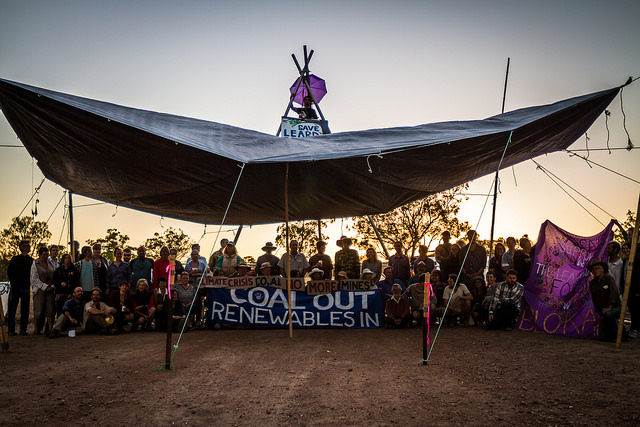In a recent article with Stefan Drews, we discussed why degrowth might be an unfortunate name and slogan for the alternative economics movement. We listed several expressions that could possibly be better, but we were also upfront about their disadvantages. Here I propose a new term that might combine the advantages of the word degrowth with those of its more positive alternatives.
For an assessment, a brief review of pros and cons of the current slogan is given. Degrowth satisfies some important criteria of a good catchword. Most notably, it raises attention. As it sounds contradictory to the currently accepted goal, it promises a real alternative. This is interesting and provocative. The word is also short and easy to remember. Besides, it has not been misused or co-opted by the mainstream yet.
However, there are serious downsides. First, degrowth has a downward orientation (Fig. 1), and “down is bad” according to a primary metaphor rooted in physical experiences. Already in ancient Rome, down meant death. We feel down and need to be cheered up. Hell is below us, heaven is above. The association of up with good and down with bad will not change in the foreseeable future. And growth is up. Plants grow upwards. We grow up, not down. Therefore, at a deep unconscious level, growth is good and degrowth is bad.
 Fig. 1. A degrowth logo.
Fig. 1. A degrowth logo.
 Fig. 2. Illustrations of growth, degrowth and other terms.
Fig. 2. Illustrations of growth, degrowth and other terms.
Second, degrowth is not “simply different” (Fig. 2). Deregulation is the opposite of regulation, decolonization is the opposite of colonization, degrowth is the opposite of growth. Any sensible person seeing Fig. 2 and knowing that two of the four labels used for the four illustrations are “growth” and “degrowth” would intuitively put these labels on the first and the third illustrations. The degrowth slogan is a source of endless misinterpretations.
Third, the most logical misinterpretation is GDP reduction, so conversations often revolve around the relationship between degrowth and recession, if not a return to the cave (Fig. 3). Activating these frames will not help to gain support for new solutions, no matter how promising the solutions might be. But popular support is essential to forcefully challenge the paradigm of economic growth.
Fig. 3. Degrowth discussions often start with negative frames, which is counterproductive.In a complex world where attention is scarce, first impressions are crucial. Degrowth spurs debate, but the debate will likely be lost. So how could we create a positive attitude towards alternative directions while keeping the advantages of the term degrowth?
Building on the popularity of the growth frame, the term can be intriguing. This is crucial to raise attention, and from this aspect, it might be better for a radical movement than slogans like “sustainable prosperity” or “good life”. Invoking growth in an innovative and somewhat puzzling way can help to focus attention on the issue of economic growth and to trigger discussions about its future, which is an important goal of the alternative economics movement.
Unlike in the case of degrowth, however, first subconscious reactions to the slogan might be positive. As the two capital letters in the beginning are separated, the first clearly understandable part is “growth”, and growth is up, and up is good. All subsequent information processing will then be influenced by the first positive subconscious evaluation.
Looking just a little more closely – which happens naturally when a term is not immediately understandable and refers to something yet unknown – one might suspect that it signifies something contradictory to the current paradigm. But this is already conscious thinking, exactly what members of the movement want to trigger. The resemblance to degrowth can help to keep the radical tone and much of the “missile word” effect emphasized by proponents of the current slogan. Furthermore, being a new expression, D.E.growth has not been co-opted by the mainstream yet. It is also short and easy to remember.
Seeing the abbreviation for the first time, one might wonder about its actual meaning. Curiosity and more or less correct guesses about the topic it refers to are a much better combination than the harmful misunderstandings that characterize degrowth. When asked about the meaning of D.E., members of the movement could give at least two crucial interpretations: “de-emphasize growth”, and “delight & equity growth”. These are clear and attractive terms that aptly summarize what the movement strives for. They can be effectively used in both personal and online communication. As a result, discussions could start by explaining the crucial objectives as part of a positive vision, instead of struggling to keep distance from frightening images when explaining what degrowth does not mean. In contrast to degrowth, putting happiness and a more equitable society in the center of the debate maps out an agenda that is “simply different” from the current paradigm. With this interpretation, D.E.growth says much more than the present slogan and captures more accurately what members of the movement want to say.
And all this is done in a very appealing way: growth of delight and equity are beyond-growth objectives people can easily agree with. Winning their hearts and minds and bringing alternative ideas somewhat closer to the ideological and political center will be essential to make a difference. The strength or lack of public support will be decisive when the next window of opportunity opens for alternatives. Naysayers who protest even in their slogan will not be able to reach out sufficiently. Presenting the same ideas as part of a positive vision holds much more potential to gain popular support.
Finally, it is also crucial that it will be easy to make the change. The rebranding is so subtle that results achieved so far will not be risked. Supporters will not turn away, web-pages will need very little editing. It is just a refinement of something that already exists, not a difficult relaunch. Compared to any other suggestion, this is a major advantage because those who invested most time and energy in building up the movement so far will have the largest influence on the decision to keep or change the name. So it is very important that people credited with earlier successes, especially the invigoration of the growth debate, will not lose anything. And they won’t. On the contrary, it is quite possible that we will all win.

Degrowth addresses the negative consequences of consumerism (psychological stress, long working hours and positional competition) and discusses the benefits of frugal lifestyles. Henri Lefebvre, a French philosopher from the 20th century, argues that if ideas or values are not physically implemented in space, they become mere fantasies. As such, if degrowth wishes to prevail, it has to leave it...

A highly relevant subject for degrowth Apparently, everybody is talking about digitalization. It was the central topic at the last World Economic Summit in Davos; recently, two German ministries have published White Papers (BMWE, BMAS) on the issue, and it’s all over newspapers and magazines. It is said to revolutionize not only industrial production (Industry 4.0) but almost any aspect of our...

By Tadzio Müller In the run-up to last year’s United Nations Climate Conference in Lima, Peru, a particular headline kept popping up, an attempt to once again establish a particular meme in the mind of global elites as well as wider populations: friends, the line goes, you’re right to worry about climate change, but – say the reports by, on the one hand, the International Monetary Fund, and on...